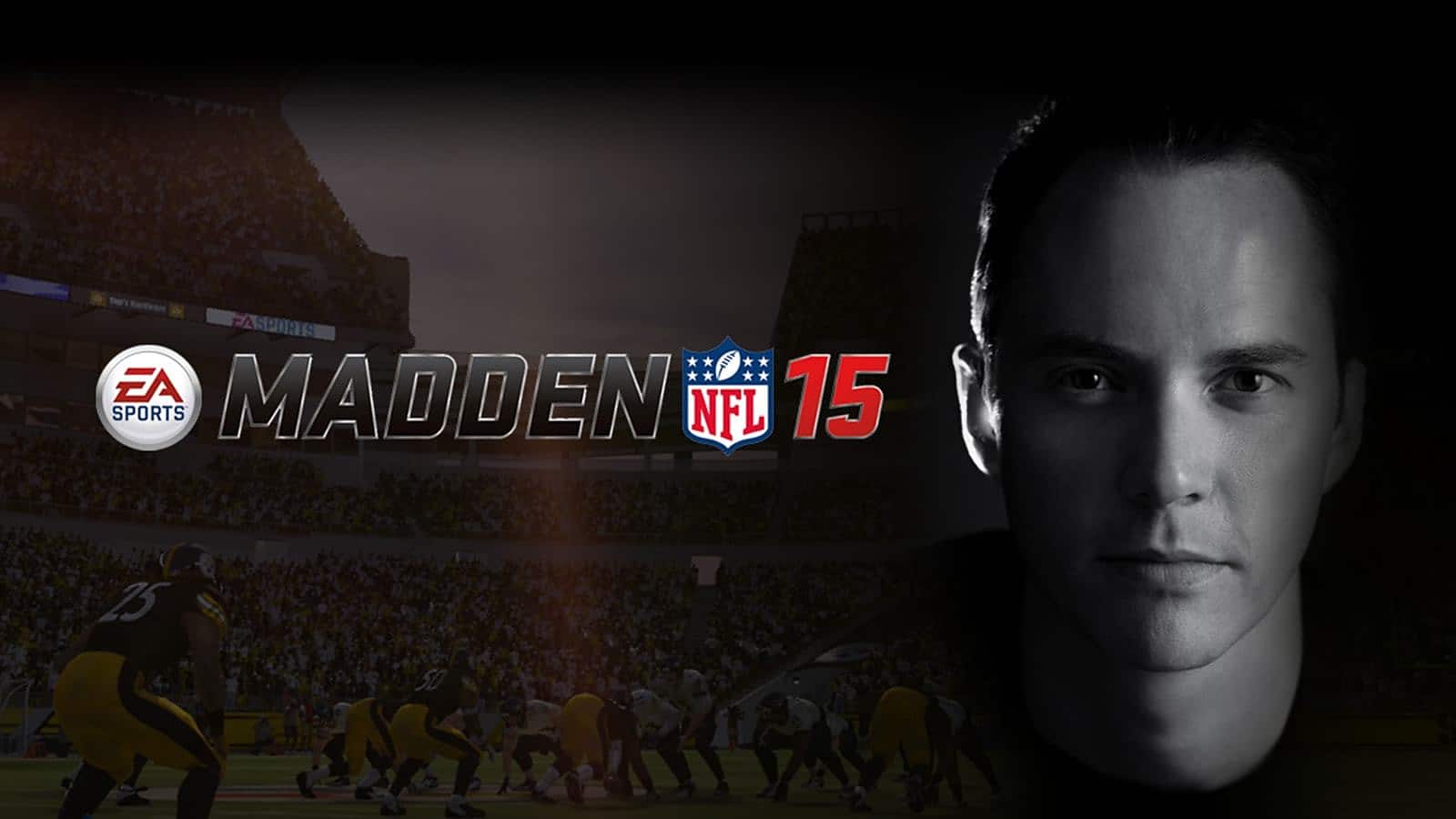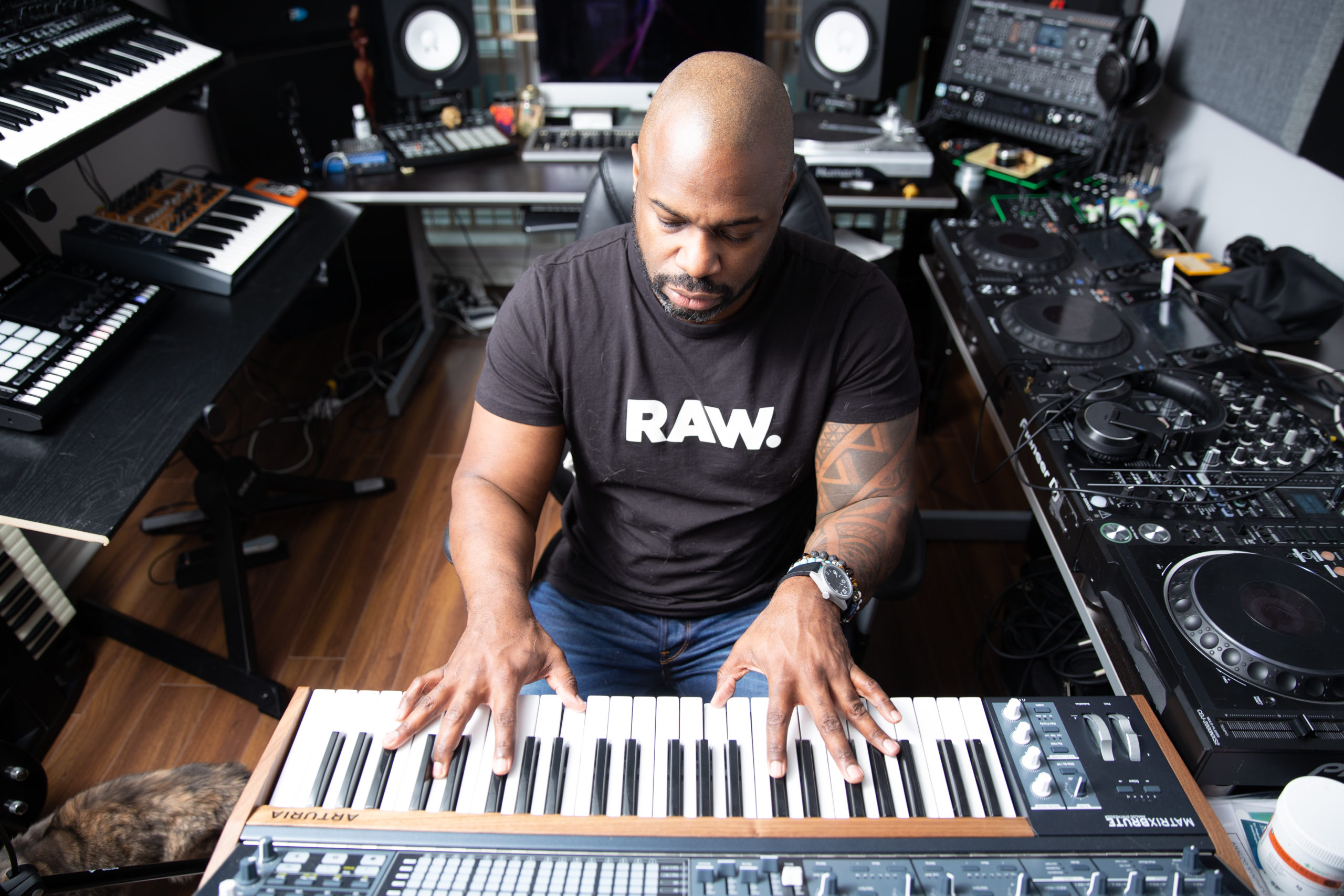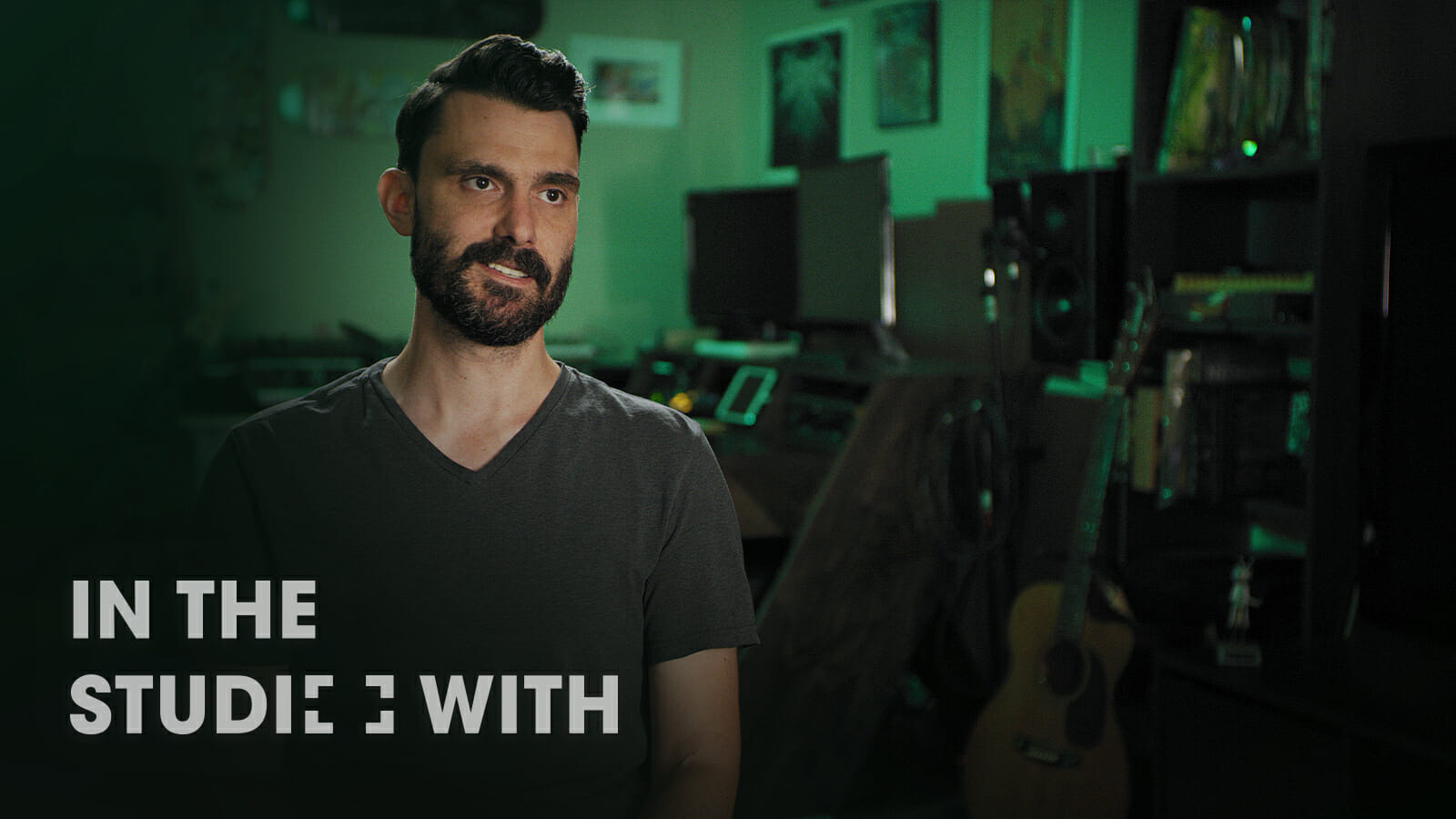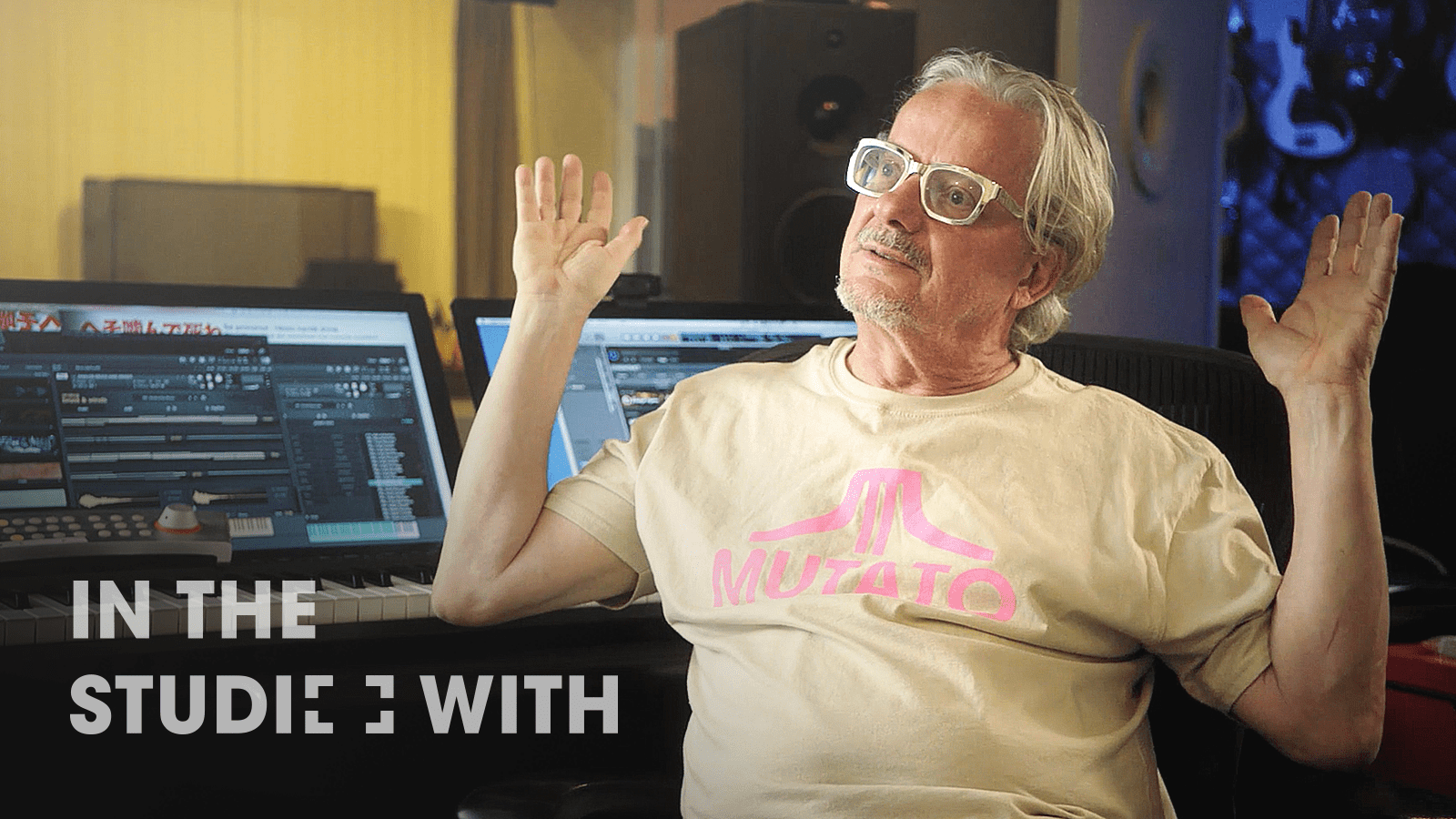
Whether it’s scoring the new Madden game for EA or the trailer for The Amazing Spider-Man, Mark Petrie is a composer known for infusing contemporary elements on top of epic orchestral writing. We sat down with him and asked a few questions about his favorite tools, how he gets his sound, his writing process, and Madden NFL 15.
You just scored Madden NFL 15. How did you get the job?
I had a track — “Puma Punku” — used in the trailer for the previous Madden game, and fortunately, through that one track, they gave me a shot at scoring the latest game.
Can you describe the scoring process?
Madden is a bit different to a lot of games in that it doesn’t require much in the way of adaptive music. In that regard, it was a much smoother transition from trailers, film, and TV. In fact, one of my first gigs was writing music for Fox Sports, so the broadcast elements (where the in-game music needs to make the player feel like they’re actually watching a real football game) came fairly naturally to me.
A big chunk of the cues we had to deliver were long menu tracks and loops. Some of these loops were in sets that had to be somewhat adaptable in that all the tempos, instrumentation, and chord changes had to match, so that the music could fairly seamlessly evolve into bigger versions as a player progresses through a level.
The game has a very long history and massive fanbase — a new version has been released almost every year since the Apple II version… in 1988! For that reason, the main challenge of the score was working with these incredible themes that composers before me had written over the past 25 years.
To be honest, when I first listened through the previous couple of Madden scores I was pretty intimidated! A lot of the orchestral writing was virtuosic in that classic “NFL film” sound. I was charged with giving these themes a fresh coat of paint — bringing a modern trailer music production into the mix, but still within a recognizable Madden or broadcast sports sound. It took a while to get the balance just right, but once we had everyone on the same page, the whole score was a thrill to produce.
Let’s talk writing process. Do you sketch out the entire track first? Do you write vertically or horizontally?
With trailer music I usually sketch out the chord changes and main melodic hooks for one section, then gradually refine the idea until I can see the track going somewhere — that it’s actually worthy of three acts. As a piano player I often use piano for the sketch, but I try to replace it quickly so that the piece isn’t dependent on the piano (unless I intend to use piano as a main instrument).
I would say I work vertically in trailers, usually starting with the first or second act. Finishing as I go, the layering of sound design and instruments helps me figure out if an idea is worth spending an entire week fleshing out.
What are some of your favorite plugins?
REV of course! I also really love Sausage Fattener for making anything sound more beefy. Guitar Rig is an endless source of fun for weird experiments.
Favorite libraries to blend?
I try to find super-realistic samples from great libraries by companies like 8Dio, SoundIron, and CineSamples, and once things get busy in a trailer track, I’ll blend them with more beefy sounds from nice, thick-sounding libraries like the Symphobia series, and synths from Omnisphere and Trillian (for boosting low-end strings and brass). I’ll often cheat and do things like blend electric guitar with horns, where the guitar is really inaudible in the mix, but the horns now punch much clearer through the mix. For choirs, I’m still using a combination of Requiem and Liberis with choirs from Omnisphere.
What goes on a typical Mark Petrie master bus?
I’m no mixing or mastering expert by any stretch, so I have some very basic tools that I’ve tweaked over the years. Basically, it’s a very light Logic EQ, then a gain plugin (which I might gently automate depending on the track) and then Ozone, which does some light maximizing, then compression, and EQ.
Any recommendations on how to build a massive following?
Ha! I don’t know about massive (see Two Steps from Hell for that) but I really appreciate all support from fans who seek out us instrumental composers. It started when I saw that a ton of my music was up on fan-made YouTube videos, and after a brief freak-out that people were “stealing” my music, I came around to realize it could actually be a very good thing. I completely embraced the fans, and as much as I have been allowed to, have kept them up-to-date with the latest music. It’s important to keep making regular updates, but I also think it’s a matter of internet etiquette to keep the self-promotion to your “page,” not just to your personal feed.
By the way, it’s great to see that most libraries now understand the value of connecting with fans. It helps elevate and bring awareness to the whole genre of trailer music.
What is the typical work day like?
I’d like to be able to say up at 6 a.m., work out, then head into the studio for a fruitful eight-hour day, but, we don’t have kids yet, so I’m still able to do wacky things with my schedule, like getting up around noon and work on and off until late in the night. I’m trying hard to break that crazy schedule, but I can’t help but feel more focused, creatively incubated, knowing pretty much everyone else is asleep. The schedule also works great for working with clients in New Zealand or the UK.
What does your rig consist of?
It’s very basic, I have a Mac Pro (not the trash can kind yet) loaded with 40GB of RAM, a nice weighted controller (Kurzweil SP2X), and a MOTU Ultralite. The only reason I can still manage to do trailer music on one computer is that I have eight SSDs inside of it (added bonus, no cable mess). I use SonnetTech’s Tempo SSD Plus cards with OWC Mercury Extreme drives. That really helps a lot with the loading and streaming of samples.
10 years from now, what do you want to be doing music-wise? Be honest!
I’m really loving working on trailer music, so I’ll probably still be doing that. The challenges of shooting for the highest level of production value, and collaborating with musicians and other composers — it’s so much hard work and a lot of fun at the same time. I also had a blast working on “Madden,” so hopefully there’s more of that in the works.
On top of trailers and games, I got into this business to be a film composer, so it would be great to be living out that childhood dream! Overall, I’d be thrilled to work on a range of meaningful projects that had me working in a variety of sound palettes and styles.



